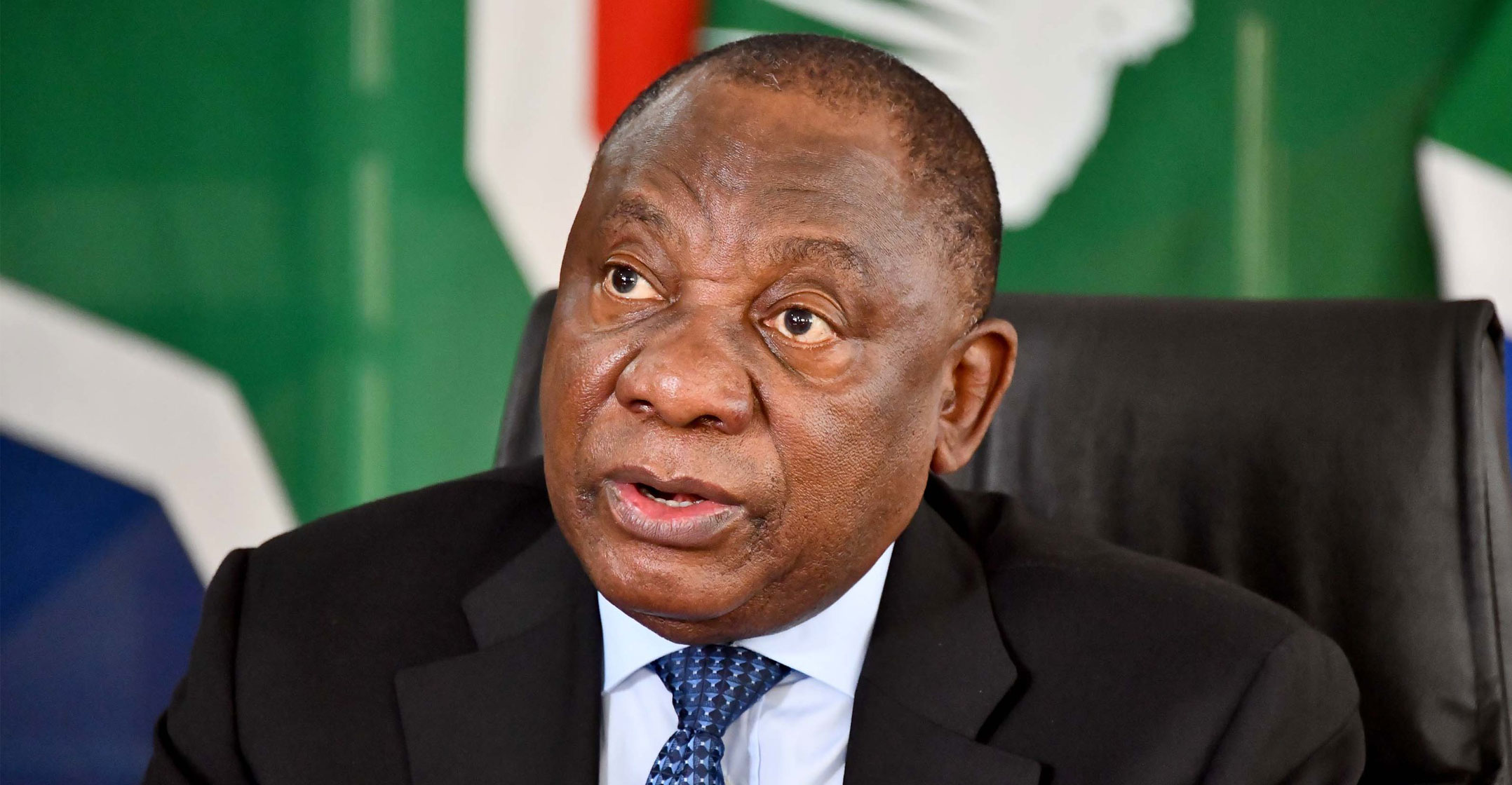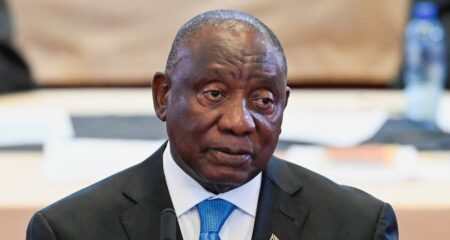
President Cyril Ramaphosa pleaded for calm following days of protests that were triggered by last week’s incarceration of his predecessor and have claimed 10 lives, forced businesses to shut and weakened the currency.
“This is not who we are as South Africans, this is not us. Time and time again we have chosen a different path, of peace, engagement and democracy,” Ramaphosa said on Monday in a televised address, his second in as many days. “What we are witnessing now are opportunistic acts of criminality, with groups of people instigating chaos merely as a cover for looting and theft.”
The riots began in the south-eastern KwaZulu-Natal, former President Jacob Zuma’s home base, and spread to Gauteng over the weekend, disrupting commerce and transport networks. Authorities arrested 489 people and sought to disperse hundreds of protesters who targeted stores across the two regions.
A key trade route in KwaZulu-Natal was shut after trucks were torched on Friday night and the looting of malls followed. Standard Bank closed its branches in protest-hit areas. Pick n Pay, Woolworths and Massmart were among the companies to shut outlets.
The rand weakened as much as 2% to R14.51/US$ in Johannesburg on Monday, the most since 25 February, as the violence spread.
Army deployed
The government said the army will be deployed to help the police quell the unrest, among the worst the nation has seen since the end of white minority rule in 1994. The protests began after Zuma handed himself in on 7 July to begin serving a 15-month sentence for defying a court order to testify at a graft inquiry. He denies wrongdoing.
“We will be prioritising the prosecution of suspects alleged to be involved in this violence,” Ramaphosa said. “We will take action to protect every person in this country against the threat of violence, intimidation, threats and looting.”
The president warned that the unrest could threaten food security and was disrupting efforts to inoculate people against the coronavirus.
The tumult coincided with the extension of a lockdown that’s hurting businesses and robbed many people of their livelihoods in a nation with a 32.6% unemployment rate.
‘’South Africa has been sitting on a powder keg for some time,” Mervyn Abrahams, programme coordinator for the Pietermaritzburg Economic Justice Dignity Programme, said by phone from Durban. Joblessness, inflation and the lockdown means “the rioting and looting is a prime way for many criminal elements to take advantage of the situation under the banner of ‘Free Zuma’ whether they believe in it or not”, he said.
The constitutional court on Monday heard Zuma’s application to have his conviction and sentencing reviewed. It reserved judgment.
Highways closed
While parts of the N3 Toll Route, which links Durban with Gauteng, was reopened on Monday, access to the M2 highway in Johannesburg remained restricted in some areas after protests erupted there overnight. The inner city and CBD bore the brunt of the violence.
“There is no grievance or political cause that can justify the violence we have seen in KwaZulu-Natal and Gauteng,” Ramaphosa said. — Reported by S’thembile Cele and Paul Vecchiatto, (c) 2021 Bloomberg LP




